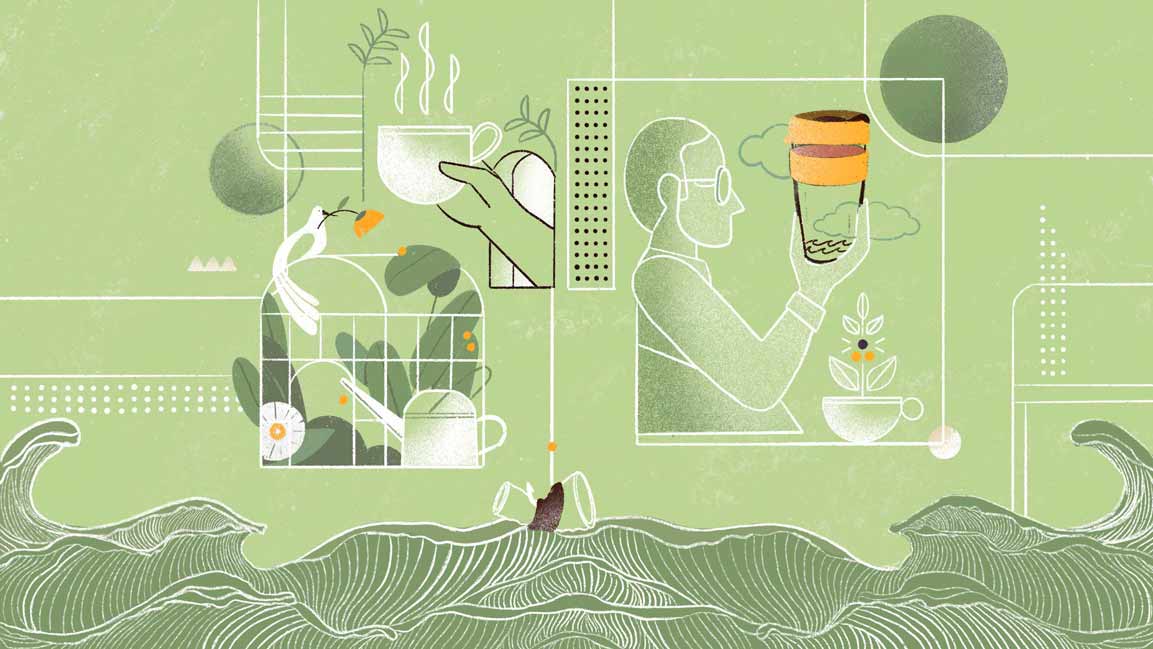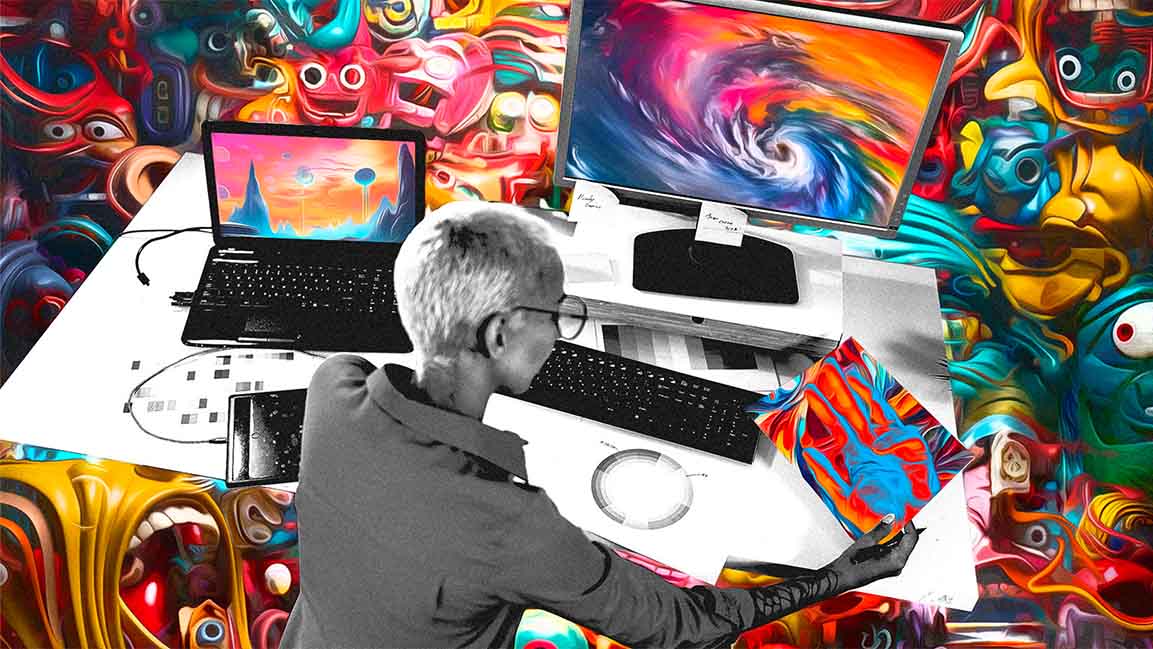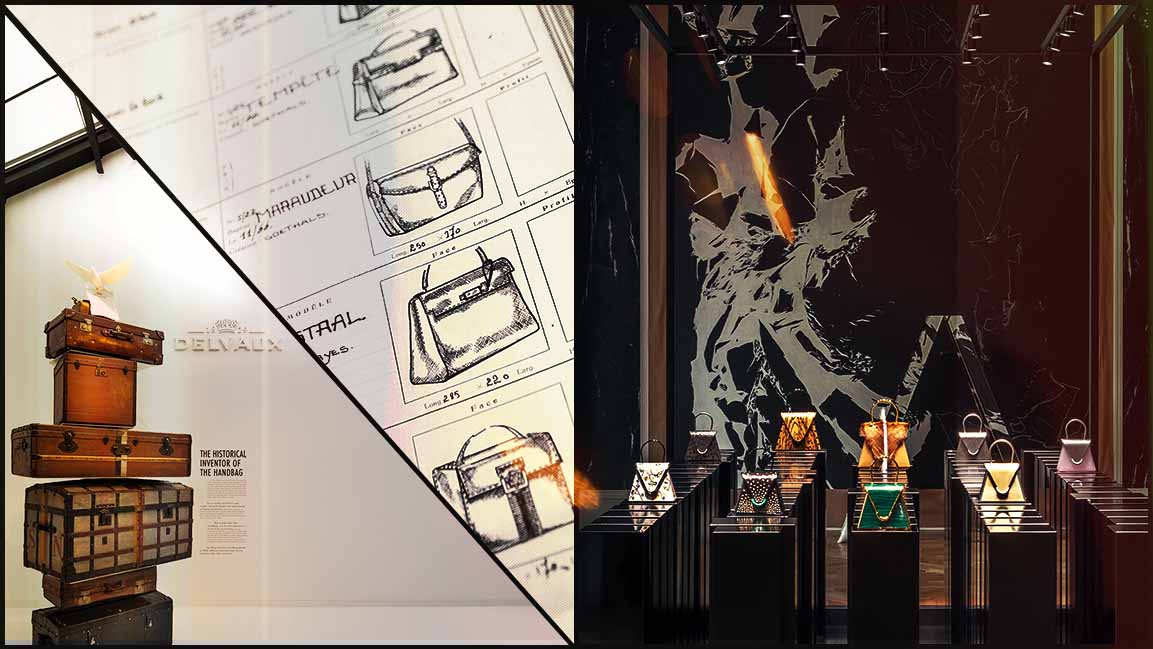- | 9:00 am
Now is the best time to ditch the disposable cup for good in the Middle East. Here’s why
We’d never ask you to quit coffee but disposable cups better belong to the bygone era. Here are a few conscious, cool alternatives

A disposable cup symbolizes many things: status, brand loyalty, preference, and — in most cases — convenience. But it is also a significant waste contributor. Pandemic-induced hysteria and a barrage of safety concerns have led to a substantial surge in disposable cups. What isn’t surprising is the ignorance around the alarming carbon footprint of one-time-use cups (paper or plastic).
The numbers add up. According to the World Wildlife Fund for Nature, 8-13 million tons of plastics find their way into oceans every year, 50% of the planet’s marine turtles eat plastic, and 90% of seabirds have plastic in their stomachs. Think again if you believe paper cups to be a better bet on environmental damage. Paper cups have a plastic inner coating, making them a recyclable menace that takes anywhere between 500 and 1,000 years to degrade fully.
Reportedly climate change concerns are on the back burner due to the world’s focus on the Ukraine crisis. Hence, we must take matters into our own mugs. Luckily switching to more conscious beverage consumption requires minimal effort, says Mariska Nell, artist, environmentalist, and host of the Mama Earth Talk podcast. With a few suggestions on the hows, whys, and whats of environment-friendly coffee/tea consumption, here are some easy habits that can help with a more conscious lifestyle:
#1 Find the right reusable mug
Besides ceramic and glass, there is a universe of innovative mugs made up of bamboo or recycled coffee mugs. However, opting for a cup at home may not be a bad option. Consider grandma’s bone China or a forgotten teacup; the point is keeping it low-key.
Expert tip: The most sustainable option is one you may already have. Look at your kitchen cupboard instead of organizing a shopping spree for a mug. Keepcup and Cheeki are my go-to, but you also get Hitch water bottles with a coffee cup designed in them.
#2 Use a cup library
If you’re on the go and forgot your cup at home, you should opt-out of the takeaway cup. Your fears of leading a greener life may be contained in a collapsible reusable mug. If you don’t have that, go for the next best thing: dine in.
Expert tip: Many cafes in the Middle East have started cup libraries that allow customers to borrow a cup from the library and return it on their next coffee run. This is a great place to donate all your unwanted old mugs and a great initiative to recommend if your favorite cafe does not have one yet. If you want to order a coffee and forget your reusable coffee mug, it might be a great moment to take a quick break and dine in with your coffee in the cafe’s ceramic cups or mugs.
#3 When in doubt, remember all it takes is a drop
The thought of your action not being enough will soon bite if you’re new to this entire renewable cup game. But before falling back into a black hole of disposable cups, consider what one action is capable of achieving.
Expert tip: Often, we are faced with the question: Will this make a difference? According to EarthDay.org, 16 billion coffee cups are used per year. Considering the difficulty in recycling these cups due to the thin plastic layer inside the cup, the majority are not recycled or are incorrectly placed with our paper recycling. If the average coffee drinker switched from getting their take-out coffee from a single-use cup to using a reusable cup, it would eliminate hundreds of cups per year. It might seem like only a drop, but collectively, it could lead to a ripple effect of change and a massive reduction in coffee cups.
“Over the last couple of years, I have seen many people starting their sustainable journey with just one reusable switch that led them to look at other areas in their daily lives where they could also make easy switches to be a bit more sustainable,” Nell says.








































